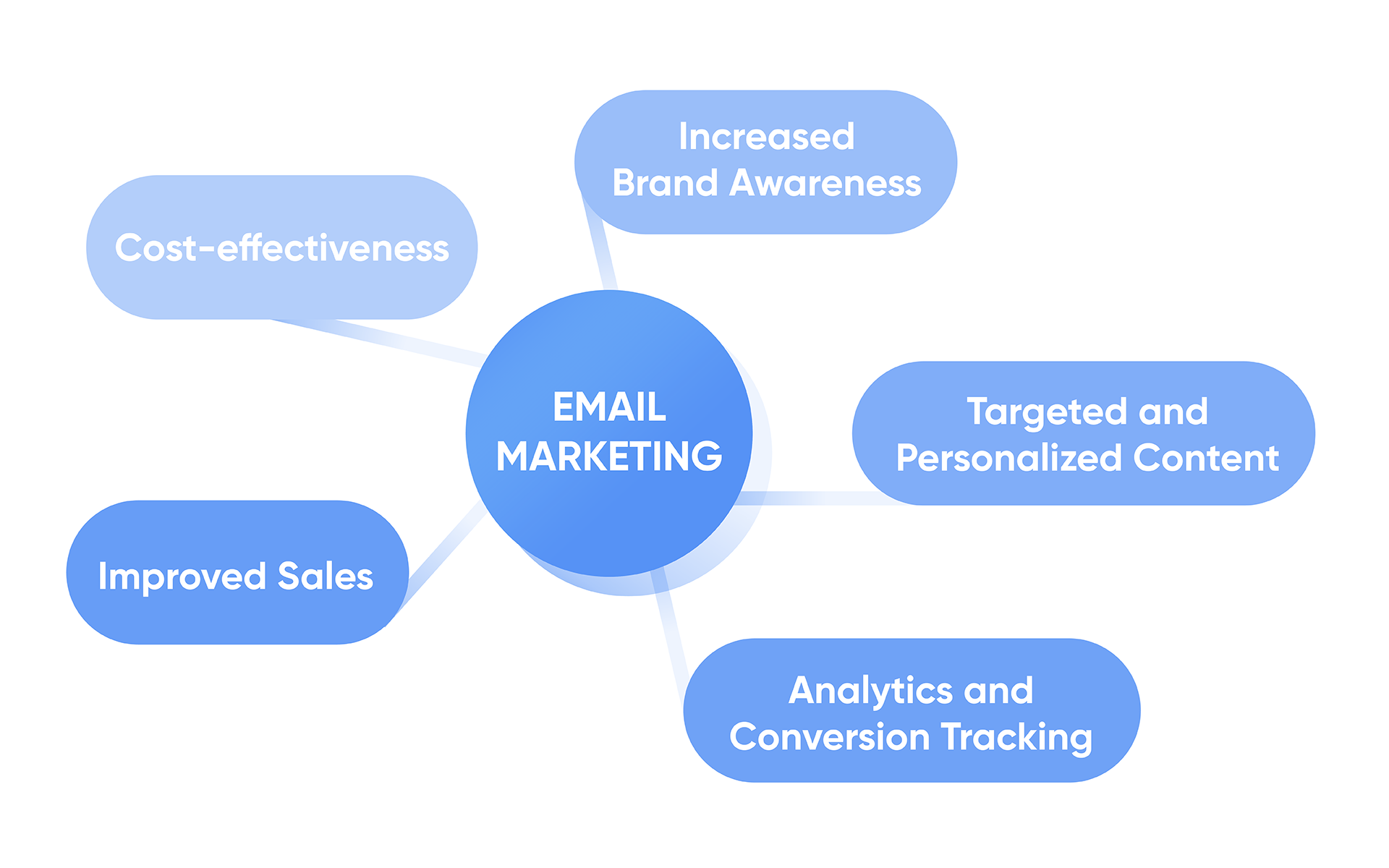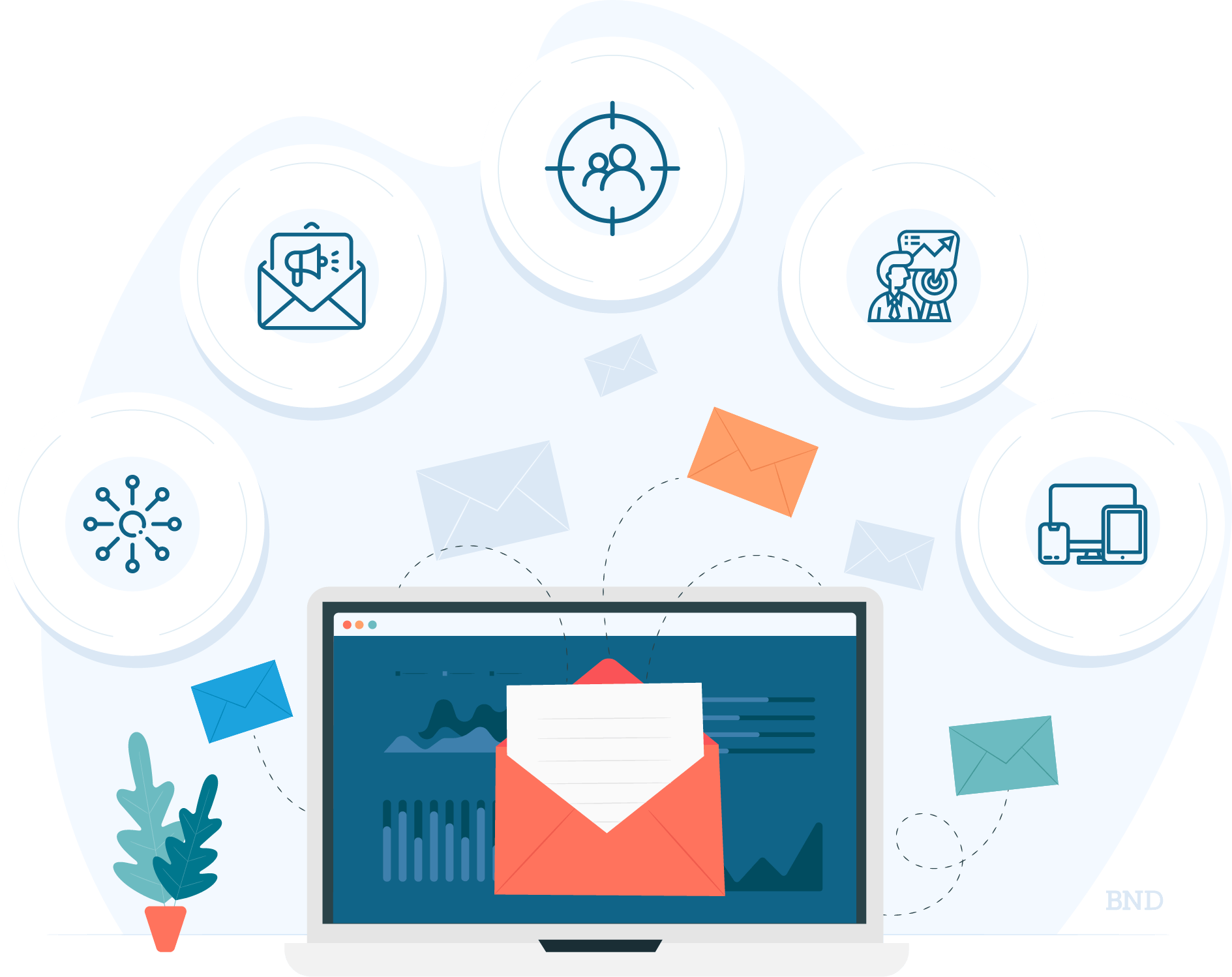Embark on a journey into the realm of email marketing and CRM, where customer engagement and business growth intertwine. Discover how these two pillars seamlessly complement each other, empowering businesses to forge meaningful connections, drive conversions, and achieve unprecedented success.
By seamlessly integrating email marketing and CRM, businesses unlock a wealth of benefits, including enhanced customer segmentation, targeted campaigns, personalized experiences, and streamlined workflows. Dive into real-world case studies to witness the transformative impact of this integration and glean valuable insights to guide your own marketing and sales strategies.
Understanding Email Marketing and CRM
Email marketing is a powerful digital marketing strategy that involves sending emails to targeted audiences to promote products, services, or events. It’s a cost-effective way to reach a large number of potential customers and nurture relationships with existing ones.
Customer relationship management (CRM) is a business strategy that focuses on building and maintaining strong relationships with customers throughout their lifecycle. It involves managing all interactions with customers, from initial contact to post-purchase support, to enhance customer satisfaction and loyalty.
How Email Marketing and CRM Complement Each Other
Email marketing and CRM are two complementary strategies that can work together to enhance customer engagement and drive business growth. Here’s how they complement each other:
- Segmentation and targeting:Email marketing allows you to segment your audience based on demographics, interests, and behavior. This data can be integrated with your CRM system to create highly targeted email campaigns that resonate with specific customer segments.
- Personalized communication:CRM systems store valuable customer data, such as purchase history, preferences, and communication preferences. This information can be used to personalize email campaigns, delivering relevant content that meets the individual needs of each customer.
- Lead nurturing:Email marketing can be used to nurture leads by providing valuable content, such as blog posts, webinars, and case studies. This content can educate leads and help them move through the sales funnel at their own pace. The data collected from email interactions can be used to track lead progress and identify those who are ready for sales outreach.
- Customer retention:CRM systems allow you to track customer interactions and identify opportunities to upsell, cross-sell, or provide personalized offers. Email marketing can be used to deliver targeted promotions and loyalty programs that encourage repeat purchases and build customer loyalty.
Benefits of Integrating Email Marketing and CRM

Integrating email marketing and CRM offers numerous advantages that can significantly enhance your marketing and sales efforts. By seamlessly connecting these two platforms, you can streamline your marketing campaigns, improve customer engagement, and ultimately drive revenue growth.
Here are some key benefits of integrating email marketing and CRM:
Enhanced Customer Segmentation and Targeting
- Create targeted email campaigns based on customer demographics, behavior, and preferences.
- Segment customers into specific groups to deliver personalized and relevant email content.
- Track customer interactions and engagement levels to identify potential opportunities and areas for improvement.
Improved Lead Nurturing and Automation
- Automate email sequences to nurture leads and guide them through the sales funnel.
- Set up personalized drip campaigns based on customer behavior and engagement data.
- Monitor lead activity and progress to identify qualified leads and prioritize sales efforts.
Increased Sales Conversion Rates
- Track customer engagement and identify potential sales opportunities.
- Integrate email marketing data with CRM to gain insights into customer preferences and buying patterns.
- Provide personalized product recommendations and offers based on customer history and behavior.
Improved Customer Relationship Management
- Centralize customer data in one location, providing a comprehensive view of customer interactions.
- Track customer preferences, communication history, and support requests.
- Personalize customer interactions and build stronger relationships.
Examples of Successful Email Marketing and CRM Integrations
Several companies have successfully implemented email marketing and CRM integrations to achieve significant business results. Here are a few notable examples:
- Shopify:Integrated email marketing with its CRM to segment customers based on purchase history and behavior, resulting in a 20% increase in email open rates and a 15% increase in conversion rates.
- Salesforce:Combined its CRM with email marketing capabilities to provide a comprehensive platform for customer management and marketing automation, leading to a 25% increase in sales productivity.
- HubSpot:Integrated its CRM with email marketing tools to create personalized email campaigns and track customer engagement, resulting in a 30% increase in lead generation.
Best Practices for Email Marketing and CRM Integration
Integrating email marketing and CRM systems effectively requires a strategic approach. Here are some best practices to consider:
Data Segmentation and Personalization:Data segmentation allows you to divide your email list into specific groups based on demographics, preferences, or behavior. This enables you to tailor your email campaigns to the interests and needs of each segment, resulting in more relevant and personalized communication.
Data Segmentation and Personalization
- Identify key segmentation criteria based on your target audience.
- Create targeted email lists for each segment.
- Personalize email content with relevant information, offers, and messaging.
- Track and analyze campaign performance to refine segmentation and personalization strategies.
Using Email Marketing to Enhance CRM

Email marketing plays a crucial role in enhancing CRM efforts by providing a personalized and automated way to nurture leads and build relationships with customers.
Here are some key ways email marketing can enhance CRM:
Segmenting and Targeting
Email marketing allows you to segment your audience based on demographics, behavior, and preferences. This enables you to send targeted emails that are tailored to the specific needs and interests of each segment.
- Use lead scoring to identify and prioritize high-potential leads.
- Create personalized email campaigns for each segment to increase engagement and conversion rates.
Lead Nurturing, Email marketing and crm
Email marketing is an effective way to nurture leads by providing them with valuable content and resources that help them progress through the sales funnel.
- Set up automated email sequences that deliver a series of educational and promotional emails over time.
- Use email marketing to track lead engagement and identify those who are ready for further contact from sales.
Customer Relationship Management
Email marketing can help you build strong relationships with customers by providing ongoing communication and support.
- Send regular newsletters to keep customers informed about new products, services, and events.
- Use email marketing to gather customer feedback and address any concerns or issues.
Using CRM to Improve Email Marketing

Customer relationship management (CRM) systems can be used to improve email marketing campaigns in several ways. First, CRM data can be used to personalize email content. For example, you can use CRM data to segment your email list based on demographics, interests, or purchase history.
This allows you to send more targeted emails that are more likely to resonate with your audience.
Using CRM Data to Improve Targeting
CRM data can also be used to improve the targeting of your email campaigns. For example, you can use CRM data to identify customers who have not made a purchase in a while. You can then send these customers targeted emails that offer them a discount or other incentive to make a purchase.
Case Studies of Successful Email Marketing and CRM Integrations
Integrating email marketing and CRM can significantly enhance customer engagement and business outcomes. Here are some notable case studies that showcase the success of such integrations:
Starbucks
Starbucks successfully integrated its email marketing platform with its CRM system to create personalized and targeted campaigns. By leveraging customer data from CRM, Starbucks tailored email content based on purchase history, preferences, and demographics. This resulted in increased open rates, click-through rates, and ultimately, sales conversions.
Salesforce
Salesforce, a leading CRM provider, seamlessly integrates its email marketing capabilities with its CRM platform. This integration allows Salesforce users to easily segment customer lists, track email performance, and automate email campaigns based on customer behavior. As a result, Salesforce customers have experienced improved lead generation, conversion rates, and customer satisfaction.
Amazon
Amazon’s robust email marketing and CRM integration has been instrumental in driving customer engagement and loyalty. Amazon uses CRM data to segment customers based on purchase behavior and preferences. This enables them to send highly targeted email campaigns that promote relevant products and offers, resulting in increased sales and customer retention.
Lessons Learned from Case Studies
- Personalization and segmentation are key to successful email marketing and CRM integrations.
- Data integration is essential for creating targeted and relevant campaigns.
- Automation can streamline email marketing processes and improve efficiency.
- Tracking and analytics are crucial for measuring the effectiveness of email campaigns and making data-driven decisions.
Trends and Future of Email Marketing and CRM

The convergence of email marketing and customer relationship management (CRM) has revolutionized marketing strategies, enabling businesses to engage with customers effectively. The future of email marketing and CRM integration holds exciting possibilities.
Emerging Trends
* Artificial Intelligence (AI) and Machine Learning (ML):AI and ML algorithms are transforming email marketing by personalizing content, automating tasks, and optimizing campaign performance.
Interactive Content
Interactive emails, such as polls, surveys, and quizzes, enhance customer engagement and provide valuable insights.
Omnichannel Integration
Email marketing is increasingly integrated with other channels, such as social media, SMS, and live chat, to create seamless customer experiences.
Privacy and Data Protection
Regulations like GDPR and CCPA are shaping email marketing practices, emphasizing transparency and consent management.
Video Email
Video emails combine the power of email with the engagement of video content, providing a more immersive and personalized experience.
Future of Integration
* Unified Customer View:Email marketing and CRM will become even more tightly integrated, providing a complete view of customer behavior and preferences.
Personalized Journeys
Advanced segmentation and automation will enable businesses to deliver highly personalized email campaigns tailored to each customer’s stage in the buying cycle.
Real-Time Marketing
Integration with CRM systems will allow businesses to trigger automated email campaigns based on real-time customer interactions.
Predictive Analytics
Machine learning models will predict customer behavior, enabling businesses to anticipate needs and proactively engage with them.
Augmented Reality (AR) and Virtual Reality (VR)
Emerging technologies like AR and VR will enhance email experiences, providing immersive and interactive content.
Ending Remarks
As the digital landscape continues to evolve, email marketing and CRM integration will remain a cornerstone of effective customer engagement. By embracing best practices, leveraging emerging trends, and harnessing the power of data, businesses can harness the full potential of this dynamic duo to build lasting customer relationships, drive growth, and stay ahead in the competitive marketplace.
FAQs
What is email marketing?
Email marketing involves sending targeted email messages to a specific audience to promote products or services, build relationships, and drive conversions.
What is CRM?
CRM (Customer Relationship Management) is a technology that helps businesses manage and track interactions with customers, including their preferences, purchase history, and support requests.
How do email marketing and CRM complement each other?
Email marketing and CRM work together to enhance customer engagement by providing personalized experiences, automating workflows, and leveraging data to optimize campaigns.
